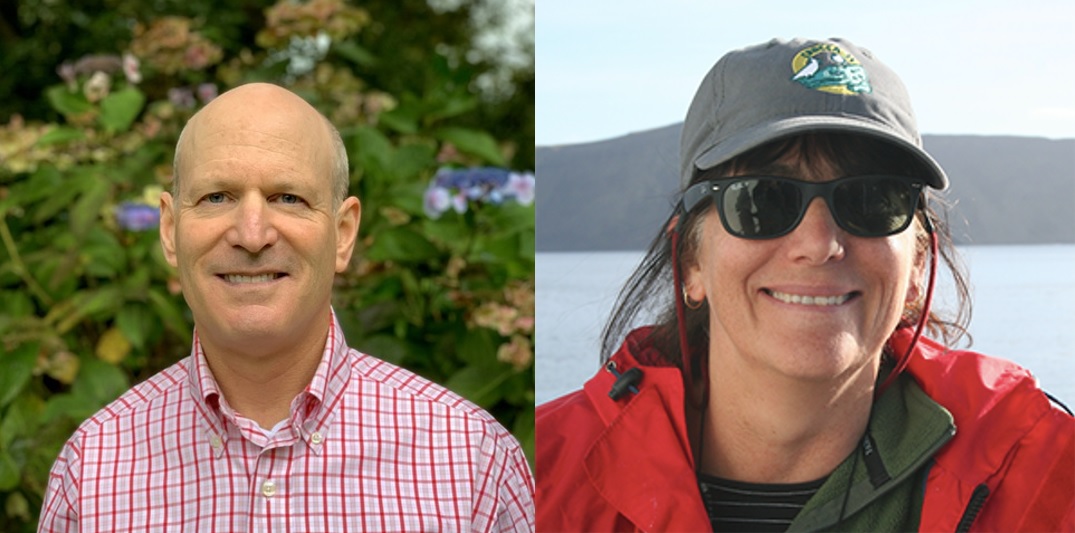Where it All Started
The PUFINS expedition started back in 2019 when the Chief Scientist, Dr. Liz Sikes, and the Primary Investigator, Dr. Julian Sachs, started writing a research grant to submit to the National Science Foundation (NSF; the primary governmental funding source for science research in the United States). In addition to the science objectives that need to be clearly and concisely outlined, every NSF proposal is required to include
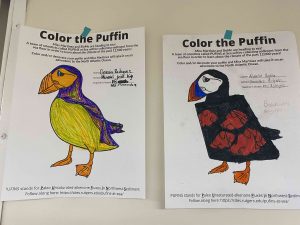
a “Broader Impacts” section. This text explains how the results of the research will benefit society either through the creation of new knowledge, the training of the next generation of scientists, or interacting with the public. Julian and Liz both come from families of K-12 teachers and they both felt it was important to find a way to include them in this project.
Rutgers University has an amazing team of outreach and education professionals that run a myriad of programs with the general public, K-12 schools, boy and girl scouts, and 4-H. It was through this network that I was contacted to help outline a plan to create an “Educator at Sea” program. My experience with informal science education at the Rutgers Geology Museum, my work with the PolarTREC program, and my science background in geology/paleoceanography put me in a unique position to combine all my skills and expertise into one project. So I was thrilled to have the chance to work with the soon to be named “PUFINS” team.
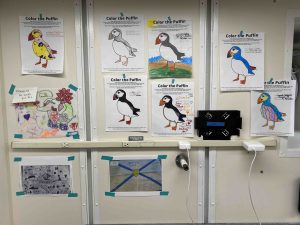
The grant was officially submitted in January 2020 with the knowledge that it can take 6 months or more for proposals of this size to be reviewed, ranked, and selected for funding. About 6 months later, in June 2020, Julian and Liz received word that their project would be funded. But we all know what was going on in the word in 2020. So even though the project was a go, the worldwide lock down meant that all research cruises were delayed for the foreseeable future. Even after operations resumed, there would be a massive backlog of expeditions. So the team could do nothing but wait and see when they might get time allotted on a research vessel for this project. After months of waiting, they were tentatively given a slot to sail during the summer of 2023, but that quickly changed in December 2021.
If you have been keeping up with our other blogs posts, you may already know that the R/V Atlantis is the ship that tenders the famous deep-sea submersible, “The Alvin”. During some routine testing of the tiny submarine, it was discovered that some of the parts were malfunctioning forcing it to return to port to be fixed. This meant that all the research expeditions that were scheduled to use the Alvin had to be cancelled and rescheduled at some unknown date. This is bad luck for any of the scientists that were planning on doing research with the Alvin now, but it also meant that a
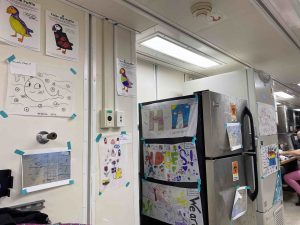
ship was now available for other research expeditions. So overnight the PUFINS team went from having a year and half to plan, to only 6 months to get everyone in order to sail in June 2022.
While Liz and Julian went to work assembling their science team and cruise supplies, I went to work finding a crew of top-notch science educators. I’m happy to report that I think all of us succeeded in achieving these goals. Our science team is wonderful and everyone is working together to get all the daily tasks done. And the educators have hit the ground running ever since we told them they were selected to join the team.
There are two main objectives to including educators in the project. The first one is to communicate the science to the public. There are so many misconceptions about climate change, and we hope by talking in an accessible manner to classrooms across the country, students and teachers will be
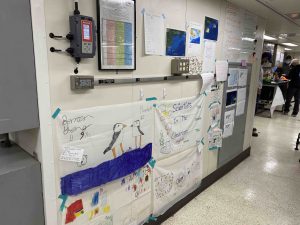
better informed citizens. Secondly, by seeing their teachers participating in research and hearing first hand from scientists from a variety of background, we hope to inspire the next generation of STEM leaders. We need to dispel the myth of nerds in white lab coats conducting science in isolated environments. Getting students excited about scientific expeditions and seeing someone that looks like you doing science are both very powerful tools.
Many of the educators asked students to create artwork that they could bring to sea with them. Hundreds of students from around the world created class flags, colored Puffins, and decorated Styrofoam cups to be displayed and photographed aboard the R/V Atlantis. We have been posting these pictures online so students can see their masterpieces next to the cutting edge science occurring in real time!
Everyone has enjoyed seeing these classroom project onboard that they asked us to display them around the science lab. You can view all the amazing art on the Classrooms at Sea section, but here are just a few examples sent to us by some budding scientists.




